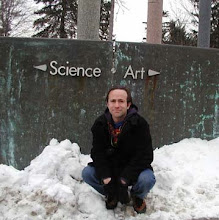The primary theme in this section is the interconnectedness of individual and collective – we have associations within ourselves and without and are engaged in multiple unions. It’s not a matter of opposition as we fluidly move between associations, which are all interdependent. Dewey argues against J.S. Mill (195) in that human thought is not individual, but always shaped by the “social medium” in which we live. Dewey claims, powerfully, the collective can in fact bring about the personal liberty we seek, rather than constraining it. “They may think they are clamoring for a purely personal liberty, but what they are doing is to bring into being a greater liberty to share in other associations, so that more of their individual potentialities will be released and their personal experience enriched.” (193-4) This goes back to the idea of the “goodness of a state” (71-2) expressed earlier to allow us more freedom to be ourselves. On 216, Dewey further states, “Organization as a means to an end would reinforce individuality and enable it to be securely itself by enduring it with resources beyond its unaided reach.”
The heart of strengthening the collective is the individual, and the means are education. Dewey illustrates how better understanding of human nature modifies social relationships, which in turn leads to changes in education, and sets up a continuing cycle of growth. (197, 200) But growth for the whole is built on growth in the individual, as Dewey writes: (200-1) “Every care would be taken to surround the young with the physical and social conditions which best conduce, as far as freed knowledge extends, to release of personal potentialities.” This is powerful, in treating people with care, we can release their possibilities, rather than the probabilities that mark a person’s life from the day they’re born.
Throughout all of this work, Dewey always stresses that there’s no absolute right answers, as with continually striving for a better state, he writes, “thinking and beliefs should be experimental, not absolutistic” (202) He suggests putting philosophers in charge of things, rather than experts/specialists – who are often too narrow in their thinking to recognize associations/connections within the state. (205) There are “common interests” between us all and there needs to be dialogue to establish that. Dewey offers an elegant metaphor: “The man who wears the shoe knows best that it pinches and where it pinches, even if the expert shoemaker is the best judge of how the trouble is to be remedied.” (207)
Ultimately, Dewey stresses the importance of community remaining “a matter of face-to-face intercourse. This is why the family and neighborhood, with all their deficiencies, have always been the chief agencies of nurture, the means by which dispositions are stably formed and ideas acquired which laid hold on the roots of character. The Great Community, in the sense of free and full communication, is conceivable. But it can never possess all the qualities which mark a local community.” (211) Again, it’s a dialogue between one another at the local level, that leads to a dialogue with those at larger level – keep in mind the global as we act local. Only this true community can come from local community. (219) Peace on earth is in his view only achievable by understanding “peoples of foreign lands.” (213) Yet to do this, we need to first understand our neighbors, remove the “otherness” about them, which in turn helps us conceive of neighbors more distant (Maxine Greene suggests this comes through the imagination.)
Dewey again emphasizes the importance of “signs and symbols” (218) and that they, like the State, must be subject to continuous inquiry in helping to bring about “a true public.” He offers this beautiful contrast, “Vision is a spectator; hearing is a participator.” (219) If seeing, in this regard, stops at the surface, we need to learn to hear each other, that is truly understand “others” to build great community. It’s a conclusion filled with hope. Dewey suggests that the means are there to achieve this notion of community, and it starts in the smallest of ways. A closing aside, the tagline of the arts and cultural web-mag I ran was “unearthing a great American city, one story at a time” (and I know there are lots of slogans like this) but to me it’s a way of thinking about community, person by person, story by story, removing otherness, and building community day by day. – Nick
Subscribe to:
Post Comments (Atom)

No comments:
Post a Comment